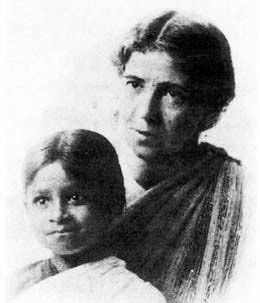
How the world sees Christians
In post-Christian America, Christians tend to be caricatured in academic circles and the press as morally inferior, reprehensible or evil because we embrace historic Christian teaching. The doctrine of sin is dismissed as antiquated and offensive, sexual morality is derided as restrictive and harmful, and the exclusivity of Christ is considered a mark of intolerant arrogance.
Politics is not the answer.
Despite the way Christian are often dismissed, ignored or derided, neither conservatives nor liberals have the answer. Politicians, whether from the left or the right, promise utopia in order to get elected, but seldom deliver. Regardless of who is in power, politics is muddy, divisive, and fractious, as we see today. As English writer and philosopher G.K. Chesterton insightfully pointed out, “from the dawn of time all men have had governments and all men have been ashamed of them”.
The Gospel
The gospel, being the power of God (Rom 1:16), has an extraordinary ability to make friends of people who otherwise would be enemies. It’s a gospel of peace that works a ministry of reconciliation (Eph 6:15; 2 Cor 5:18). We see this clearly illustrated in the surprisingly diverse make-up of the Antioch church in the book of Acts. Christians support a positive, proactive vision for living out the gospel in the public square –- a vision that provides moral clarity for Christian political engagement that is firmly rooted in Biblical authority and gospel depth. Though we see politicians as flawed, we regard politics as a legitimate tool for societal change. How?
Christian Theocracy? No.
Though Christianity does indeed apply to every sphere of life (Col 1:19-20), we do not need a theocracy in which leaders rule on behalf of God. Christianity has never required that we hold positions of power. God brings about change, not through theocracies, but primarily by regenerating and strengthening the human spirit, which inspires godly thought and decisions, and which in turn impacts communities and societies and the way they are run.
Christian engagement in a plural society
As Christians we are convictional pluralists. There will always be people who worship Christ and others whose affections are fixed on false gods, and a whole range of people in between. We live in a democratic republic where the beliefs of the majority shape the lives of the minority. The Christian faith equips us to tolerate and thrive in this messy pluralism. Through common grace we actively seek opportunities for political cooperation with others for the good of the world (see Jer 29:7). We work for the common good and we challenge our fellow citizens –- religious and atheists alike — to do so too, in a way that safeguards and promotes the public good. We pursue the welfare of our society, but as exiles –- as resident aliens: in the world but not of it (Jn 17:16; 1 Pet 2:11).
Prophetic ministry
Christianity therefore stands as a prophetic ministry in a pluralistic culture. Christianity is not merely meaningful for us personally, but is healthy for society as a whole. We confront false ideas with courage. We critique both parties — both conservatives and liberals — because our allegiance is to Christ, not a party. Our Christian faith provides a vantage point from which to critique an overreaching government, prevent patriotism from becoming national chauvinism, and stop us being mean-spirited about our deepest convictions. We witness to our society as a minority group, from the margins. We offer a third way, not the way of conservatives or liberals, but the Way of Christ. We overcome a divisive, fragmented perspective on politics with a conversation framed in the Biblical master-narrative of the gospel: Creation, Fall, Redemption and Consummation.
The root cause of the problem: The Fall.
In the aftermath of the Fall and the ensuing depravity of the human heart, we find we have the entrenched tendency to twist God’s created order into idolatry. Politics is directed towards idols rather than God. Instead of wisely stewarding God’s resources to bless others, we grasp for power, trample the weak, spew vitriol and create factions. Neither liberals nor conservatives are the problem – we are: all of us. We are profoundly alienated from God, from ourselves, from others, and from creation. This is the polar opposite of the concept of shalom: of godly community. When things are pointed away from Christ, intended blessings become a curse. This is precisely why the regeneration of the human spirit is so crucial (refer John 3:3).
Hope: Redemptive Mission
Through the gospel, we offer a different hope as we seek to display Christian character and discernment. The power of sin and death is at work trying to claim every square inch of this universe. But God’s power — the power that raised Jesus from the dead — is counterclaiming every inch. Through Christ a new power is at work in this world to renew and restore it. The political realm, as dark as it may seem, will one day bow in submission to Christ. Everything we do takes place under God. As God’s people, we apply Christ’s love in the political arena, bringing our Christian beliefs into the political discourse in a constructive and healthy way. We challenge our legislative, judicial and executive branches to foster a political environment that does not promote any type of zealotry. It should not actively promote the beliefs of any kind -– religious or atheist -– that deny religious liberty and promote the interests of the few over the interests of the many. In this way, the Christian perspective makes room for everyone to thrive together, and flourish.
Vision: Final Consummation
God built into this world a splendid diversity that finds its ultimate unity in Him (Rev 7:9). We pray for God’s Kingdom to come on earth. We are intentionally missional (Mt 28:19-20). Our goal is shalom: a perfect fellowship in which God reigns in every heart, and His children rejoice together in His love and joy. We strive for God’s vision upon the earth. Shalom will never be perfect in this fallen world, but as surely as Christ was raised from the dead, we know there will be a new heaven and a new earth wherein perfect righteousness dwells, and there will be no more tears: no more death, mourning, crying, or pain (Rev 21:4). This is the extraordinary future that God has in store for us!
God has a compelling vision for His people who, if authentically living out the Way of Christ, are able to make a vitally important contribution to the political life of our country and our world. In all we do, may we be centered in the gospel: Word-saturated, Spirit-led, and Christ-honoring.
For an additional perspective, see our blog article on Politics as Mission.
Acknowledgements
This blog post has summarized key points and drawn extensively from the following helpful resources about Christianity and politics:
Ashford, B. Every Square Inch: An introduction to cultural engagement for Christians. Lexham, 2015.
Ashford B. and Pappalardo, C. One Nation Under God. A Christian Hope for American Politics. B&H, 2015.
This blog post was written by Warwick Alcock, Director Strategic Operations, Village Schools of the Bible

 bore much eternal fruit.
bore much eternal fruit.